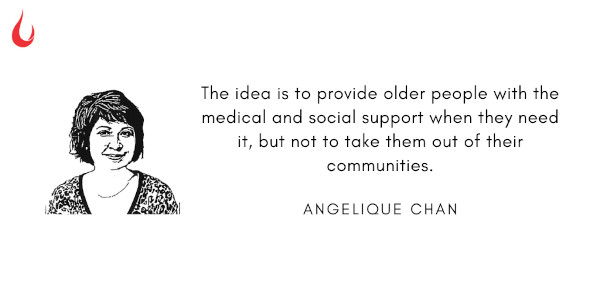[Image by WikiImages from Pixabay]
Good morning,
Hope you had great Dussehra holidays. The Dussehra vibe is still in the air, and we thought we should share a nice story that VS Krishnan, a member of the Founding Fuel community, sent us a couple of days back. Here’s a shortened version.
After Valmiki completed his Ramayana, he showed it to Narada. But, Narada was not impressed. He said, “It is good, but Hanuman's is better.”
Valmiki rushed to Hanuman’s place to find it out for himself. He began reading the text. It was perfect. The most exquisite choice of grammar and vocabulary, metre and melody. He felt despondent. “After reading Hanuman’s Ramayana no one will read mine,” he cried.
Hearing this Hanuman simply tore up his Ramayana: “Now no one will ever read Hanuman's Ramayana.”
Valmiki was shocked. He asked why Hanuman tore it up. Hanuman said, “You need your Ramayana more than I need mine. You wrote your Ramayana so that the world remembers Valmiki; I wrote my Ramayana so that I remember Ram.”
At that moment he realized how he had been consumed by the desire for validation through his work. He had not used the work to liberate himself from the fear of invalidation. He had not appreciated the essence of Ram's tale to unknot his mind. His Ramayana was a product of ambition; but Hanuman's Ramayana was a product of pure devotion and affection. That's why Hanuman's Ramayana sounded so much better.
There are people like Hanuman who don't want to be famous. They just do their jobs and fulfil their purpose. There are many unsung "Hanumans" in our life too, Mother, Father, Friends, let's remember them and be grateful to all.
In this issue
- The importance of ‘ageing in place’
- How are bookstores faring during the pandemic?
- The many uses of a mask
The importance of ‘ageing in place’
India is a young country, and the traditional family structure takes care of a range of needs—from insurance to elderly care—that advanced countries have outsourced to institutions. However, there are many Indias within India, and circumstances in each family differ. There are growing concerns about how India should take care of the elderly.
The Conversation has an essay by Angelique Chan, executive director of the Centre for Ageing Research & Education, National University of Singapore, on how the other Asian countries, especially Singapore and China, are dealing with it, and lessons one can draw from it. Here’s a lesson from Singapore’s integrated care.

“In its ideal form, integrated care allows older people to ‘age in place’, that is in their own homes. Older people can have their health and social care needs satisfied without having to be institutionalised, which decreases the need for government spending on institutional aged care.
“Previous research has shown older adults who ‘age in place’ are happier and have a higher quality of life than those in institutions.
“In order to achieve an integrated care system, there has to be an alignment of goals across players in the health and social care systems.
“In Singapore, this ethos has taken hold in the last decade. In 2009, the government established an Agency for Integrated Care (AIC), which acts as a central repository of information for older adults and provides them with referrals and placements with health and social services.
“For example, older people can contact the AIC to obtain referrals for things like dementia day care or rehabilitation services.
“The idea is to provide older people with the medical and social support when they need it, but not to take them out of their communities.”
Dig Deeper
How are bookstores faring during the pandemic?
Physical retail has been among the worst-hit during the pandemic. How are the bookstores—which were already getting beaten down by ecommerce—faring?

[Image by Lubos Houska from Pixabay]
- In Delhi, Bahrisons, well known for its Khan Market outlet, opened a new store this month at Ambience Mall, Vasant Kunj.
- Foot-fall at Blossoms, a popular bookstore in Bangalore, is 60% of what it used to be before the pandemic. Even back in May it started taking orders by phone.
- Blossom’s neighbour Bookworm is launching its own website in November.
- Atta Galatta, a bookstore in Koramangala, Bangalore, has become more active than ever on social media
- In New York, the famous Strand Bookstores, asked for help online. Customers thronged the outlet, and 25,000 online orders flooded in over the weekend.
What’s happening at your favourite (physical) bookstores? Tell us about it.
The many uses of a mask

(Via WhatsApp)
But, of course, we recommend you to use it on your nose and mouth.
Tell us what you think. Head over to our Slack channel.
And if you missed previous editions of this newsletter, they’re all archived here.
Bookmark Founding Fuel’s special section on Thriving in Volatile Times. All our stories on how individuals and businesses are responding to the pandemic until now are posted there.
Warm regards,
Team Founding Fuel


